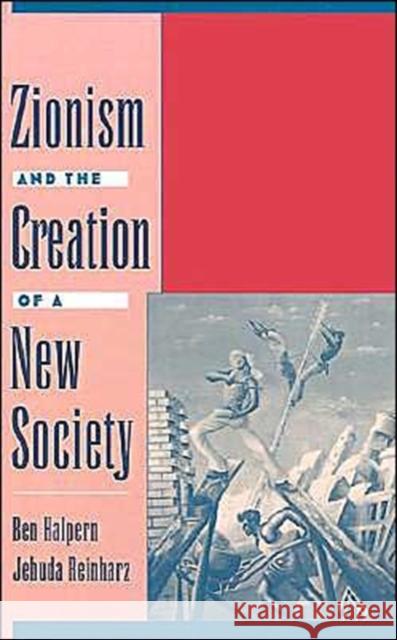Zionism and the Creation of a New Society » książka
topmenu
Zionism and the Creation of a New Society
ISBN-13: 9780195092097 / Angielski / Twarda / 1998 / 304 str.
Israel is a modern state whose institutions were clearly shaped by an ideological movement. The declaration of independence in 1948 was an immediate expression of the fundamental Zionist idea: it gave effect to a plan advocated by organized Zionists since the 1880s for solving the Jewish Problem. Thus, major Israeli political institutions, such as the party structure, embody principles and practices that were followed in the World Zionist Organization.
In this respect, Israel is similar to other new states whose political institutions directly derive from the nationalist movements that won their independence. History and social structure are inseparably joined; the contemporary social problems of the new state are clearly rooted in its history, while the shape of its future is being decided by the very policies through which it is trying to solve these problems. At the same time, there are many unique aspects to the birth of Israel. The problem to be solved by acquiring sovereignty in Israel (and establishing a free Jewish society there) was the problem of a people living in exile. The first stage, therefore, was to return to the people a homeland to which they were intimately attached, not only in their dreams but in the minute details of their ways of life. This important book studies the birth of the State of Israel and analyzes the elaborately articulated and variegated ideological principles of the Zionist movement that led to that birth. It examines conflicting pre-state ideals and the social structure that emerged in Palestine's Jewish community during the Mandate period. In particular, Zionism and the Creation of a New Society reflects upon Israel's existence as both a state and a social structure--a place conceived before its birth as a means of solving a particular social malady: the modern Jewish Problem. Jehuda Reinharz and the late Ben Halpern carefully trace the development of the Zionist idea from its earliest expressions up to the eve of World War II, setting their study against a broad background of political and social development throughout Europe and the Middle East.










